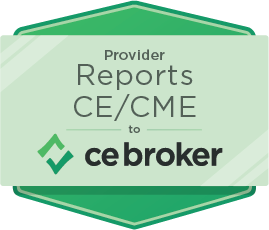- 50-315
14 CE credit hours required every year — 14 may be earned with CE-Credit.com.
Applies To:
- Kentucky Nurses

One time requirement:
Suicide Prevention
A minimum of 2 contact hours in suicide prevention which includes:
1 contact hour in suicide prevention generally; and
1 contact hour that addresses:
Chronic toxic stress and secondary traumatic stress potentially increasing the incidence of suicide amongst nurses;
A confidential and standardized pathway to care for nurses that addresses screening, assessing, safety planning, referrals, and follow-up for nurses at risk for suicide;
Systems of care, evidence-informed approaches, and best practices to reduce suicide rates; and
Ethical legal considerations for caring for patients and nurses who are suicidal.
Implicit Bias
A minimum of 1.5 contact hours in implicit bias that addresses: The impact of historical racism and other forms of invidious discrimination on the provision of healthcare; Methods of evaluating the presence and extent of implicit bias; and Measures that may be taken to reduce implicit bias.All APRNs are required to complete at least 5 contact hours in pharmacology every earning period.
APRNs Advanced Practice Registered Nurses with a CAPA-CS are required to complete at least 1.5 of contact hours in the dual subjects of pharmacology and either pain management, or addiction disorders, every earning period
APRNs with a DEA-X Registration: Complete a total of four (4) contact hours annually in addiction disorders, and 1.5 contact hours in the dual subject of pharmacology addiction disorders. Hours earned in pharmacology addiction disorders may be applied to the five (5) pharmacology hours required for all APRNs
Board Contact Info
Kentucky Board of Nursing
KBN Office: 502-429-3300 or 1-800-305-2042 (Toll-Free)
https://kbn.ky.gov/Education/Pages/nursing.aspx
https://kbn.ky.gov/Education/Pages/Continuing-Education-Competency.aspx
| Course Description | Medium |
|---|---|
|
Compassionate Care - Going the Extra Mile: Sex Trafficking Survivors' Recommendations for Healthcare Best Practices
2 CE credit hours
Sexual Abuse |
Reading-Based Online |
|
Adolescent Suicide—Understanding Unique Risks and Opportunities for Trauma Centers to Recognize, Intervene, and Prevent a Leading Cause of Death
1 CE credit hour
Children and Adolescents; Suicide |
Reading-Based Online |
|
Human Trafficking
3 CE credit hours
Sexual Abuse; Clinical Topics & Methods; Forensic, Criminal Justice; Application to Practice; Peer Recovery |
Recorded Webinar |
|
Violence Against Older Women: A systematic review of qualitative literature
3 CE credit hours
Domestic Violence |
Reading-Based Online |
|
Advanced Ethical Issues for Mandated Reporters of Child Maltreatment: Meets ethics requirement for NY Psychologists
3 CE credit hours
Couples, Family; Ethics |
Recorded Webinar |
|
Beyond the Blues: Understanding and Treating Prenatal and Postpartum Depression and Anxiety
5.5 CE credit hours
Clinical Topics & Methods; Couples, Family |
Book |
|
Improving Care to Prevent Suicide Among People With Serious Mental Illness 2019: Proceedings of a Workshop
4 CE credit hours
Clinical Topics & Methods; Suicide |
Reading-Based Online |
|
Drug, Brains, and Behavior: The Science of Addiction
1 CE credit hour
Addictions, Substance Use; Understanding Addiction; Prevention |
Reading-Based Online |
|
Psychological Advocacy Towards Healing (PATH): A Randomized Controlled Trial of a Psychological Intervention in a Domestic Violence Service Setting
1 CE credit hour
Domestic Violence |
Reading-Based Online |
|
When Intimate Partner Violence Meets Same Sex Couples: A Review of Same Sex Intimate Partner Violence
1.5 CE credit hour
Domestic Violence |
Reading-Based Online |

